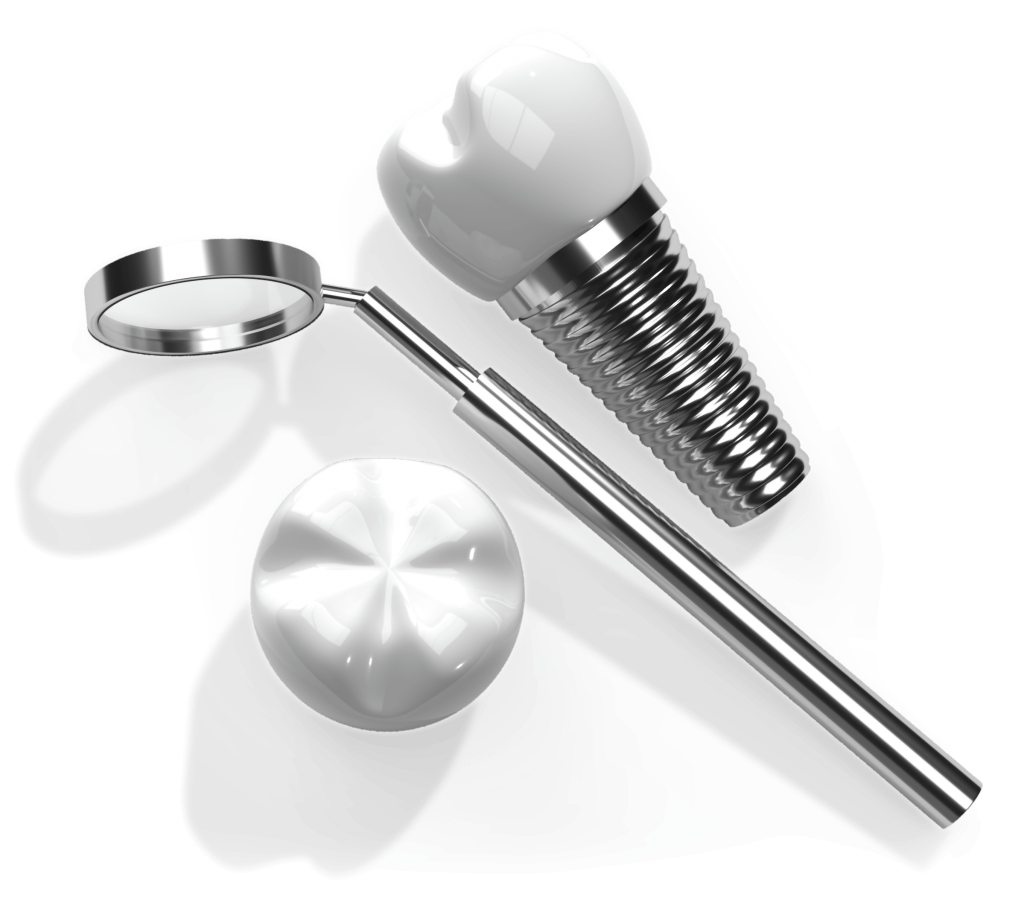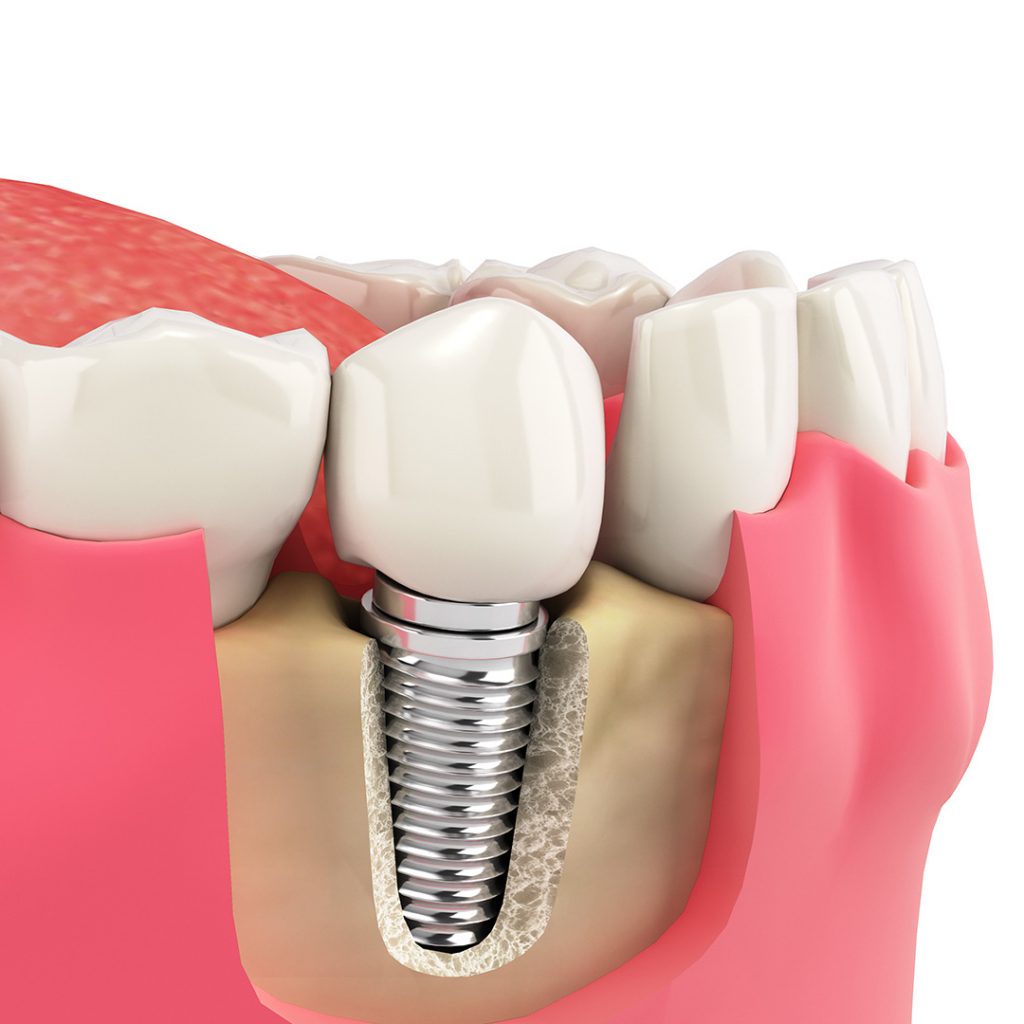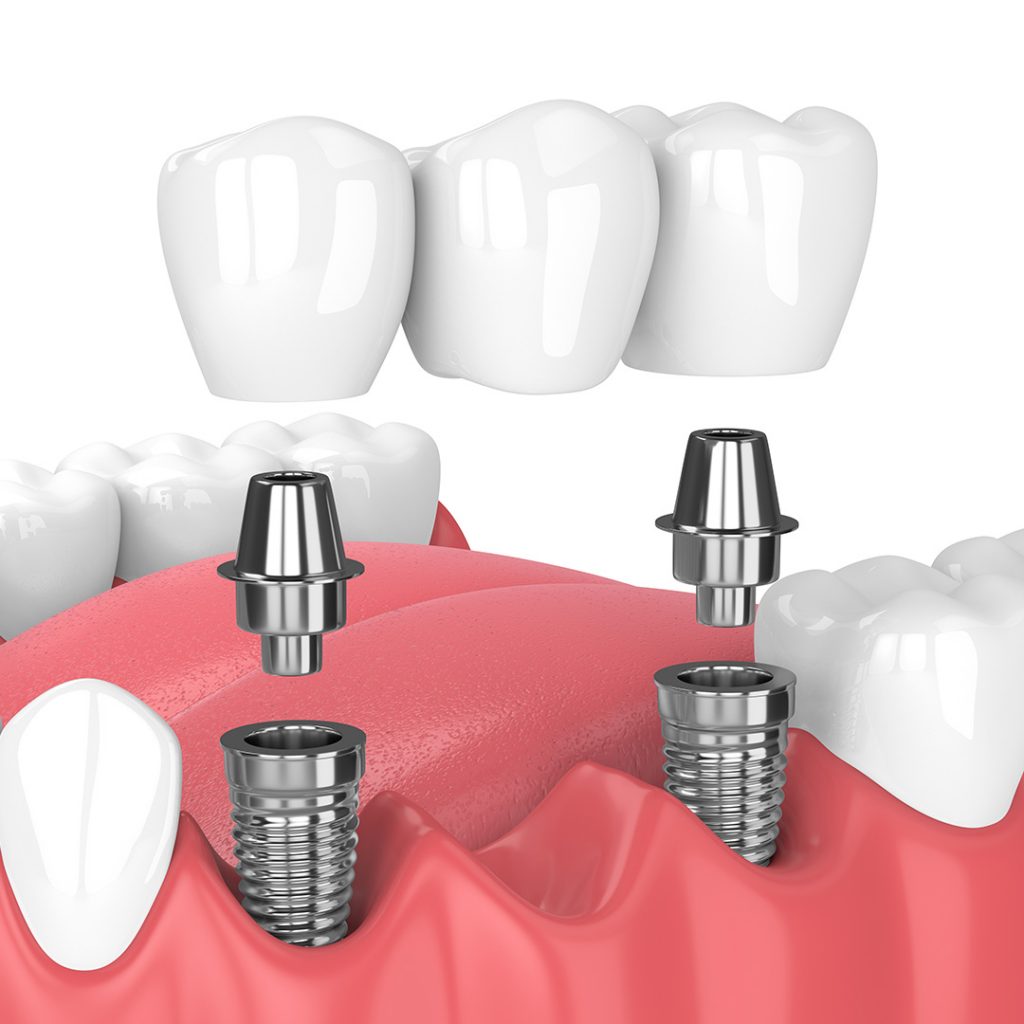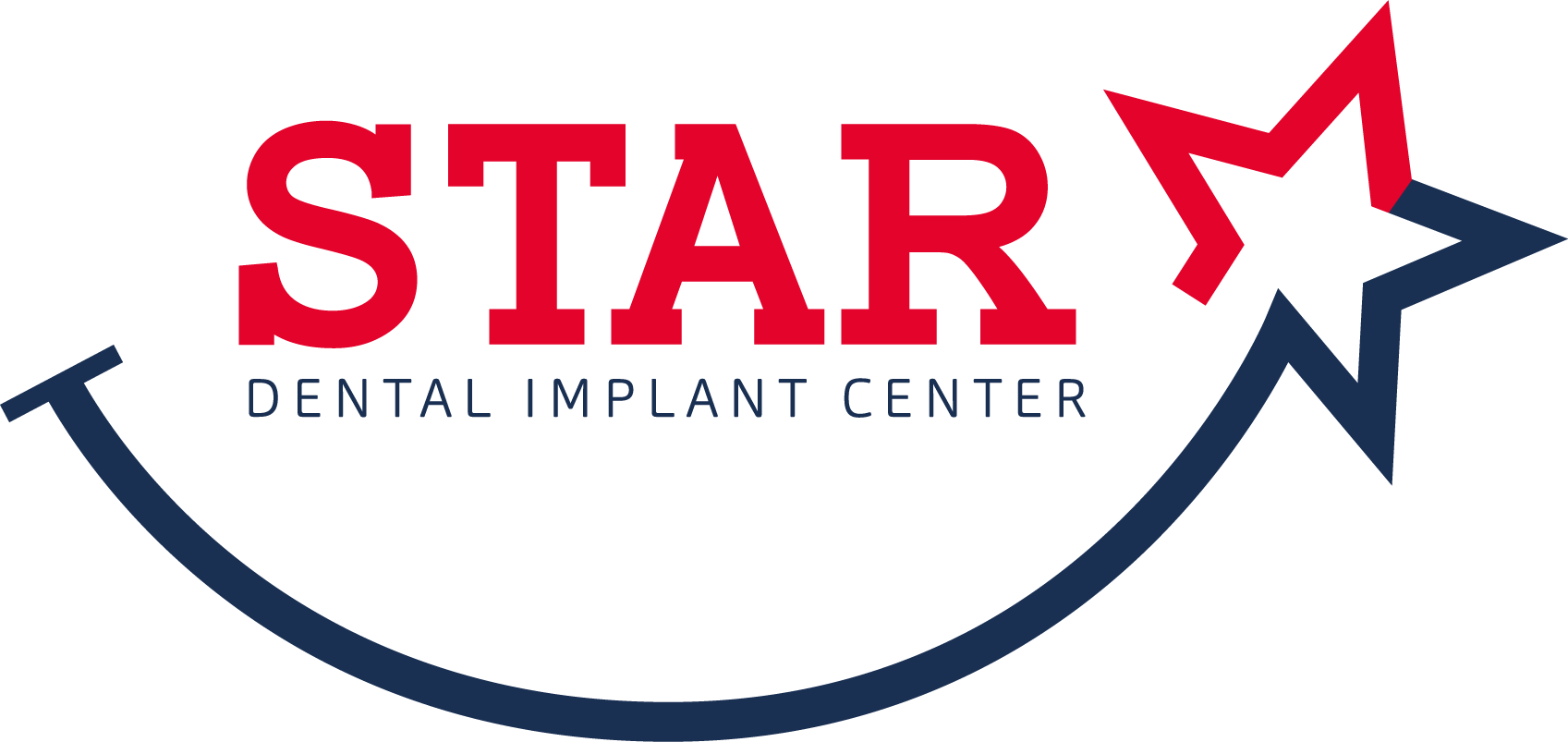
Dental Implants
A dental implant is a post-shaped replacement for the tooth root that is surgically implanted into the jawbone. This new “root” is typically made of titanium, which is also used in hip and knee replacements so we know it is a material that pairs successfully with the human body. The post is then fitted with a connecting part called an abutment and a custom-made crown.
While, the best candidate is a nonsmoker with good oral health, including enough bone in the jaw and healthy gums with no signs of gum disease, we can still help people who are not the ideal candidate restore their smile and function using dental implants. We will complete a clinical evaluation at your first appointment with us, discuss your options and determine the best treatment plan for your specific needs to give you the best possible outcome.
Most of the patients we see at STAR Dental need a combination of dental implants and crowns to replace a damaged or missing natural tooth with a newly fixed tooth that looks great and feels natural. Implants and custom-made crowns have the advantage of allowing you to eat all your favorite foods because unlike dentures they are fixed to your bone and won’t move while you chew.
Benefits of Dental Implants
Look great and feel confident
Our results speak for themselves!
STAR Dental Implant Center’s patients are able to smile with confidence and participate in life again.
Improve your health and well-being
Periodontal disease has been shown to be related to heart disease and stroke. Potential infection sites and other problem areas will be addressed as you undergo your procedure, improving both your oral and your overall health.
Eat all your favorite foods
If you’re thinking about dental implants or an All-on-4 procedure, then it’s possible you’ve experienced a traditional denture. Traditional dentures are clumsy, uncomfortable, and difficult to care for. With dental implants, you will be able to eat all of your favorite foods again.
Fix your problem permanently
No more adhesives, nightly cleanings, or dentures slipping while speaking or eating. With STAR treatments you’ll get a permanent solution that looks great and feels natural. New advances in dental technology have improved dental treatment results dramatically – there’s no better time to invest in your new smile.

Single Implants
A single implant is exactly what it sounds like: a single dental implant replaces one tooth. The implant is placed into the jawbone and allowed to heal for a period of 3 to 6 months. Once secure in the jawbone an abutment and custom-made crown are attached to the implant restoring chewing function and/or the aesthetics of your smile.
Implant Bridges
Implant bridges use two implants, one on each end, and can replace three or four teeth depending on where in the mouth the bridge is needed. The two implants act as supports for the bridge and use pontics (crowns without the support of implants) to “bridge the gap” between the implants.

Most Common Questions about Dental Implants
Do dental implants hurt?
Once the initial implant has been placed and healed, no, dental implants are not painful. Immediately after surgery, we will provide you with appropriate pain management medications to help manage your pain levels. Once the gum tissue heals from the implant procedure you will not be able to tell the implant is in the jaw.
Does drinking alcohol have an affect on my dental implants?
An occasional drink will not harm your dental implants. However, excessive drinking may have a more serious effect on your dental implants. Talk to your doctor about your alcohol intake if you think this may be something that prevents you from going through with treatment
How do missing teeth contribute to jawbone deterioration?
If nothing is anchored in the jawbone, the jawbone begins to deteriorate over time. As a result of this deterioration, the face may appear sunken in. Aside from making a person appear older than they are, bone loss can make eating difficult. The good news is that dental implants can solve this problem because, like a natural tooth’s root, the titanium implant is anchored in the jaw bone, preserving its structure.
What effect does tooth loss have on food consumption?
Certain foods may become challenging, sometimes impossible, to eat. When you are missing your front teeth (anterior or front teeth), bitng into an apple or even a slice of pizza can be difficult. When you are missing your back teeth (posterior or back teeth) Furthermore, after tooth loss, it can be difficult to feel at ease in social situations: Especially since the vast majority of social gatherings involve food consumption. Men and women are realizing that dental implants allow them to eat their favorite foods while also feeling good about their smiles.
What are implants made of?
The dental implants that we use today resemble a screw and are made of titanium. Titanium is the same material used in hip and knee replacements, so it is bio-compatible in the human body, which gives it the ability to fuse directly to the bone. This unique fusion process is referred to as osseointegration.
Who is a suitable candidate for dental implants?
Most people who contact us are candidates for our procedures. If you’re looking for our help it’s probably because you already feel you need a change but might not know your options. Many patients call us because they have trouble eating their favorite food or have lost confidence in their smile. Whatever your unique situation is, our clinicians will conduct a pre-diagnosis, walk you through your treatment options before you travel, and will conduct a personal in-depth diagnosis before you determine your preferred treatment plan.
How much do implants cost?
Costs vary depending on your specific needs, however, we’re able to save patients 50% to 60% after-travel costs compared to US prices. Our clinicians and patient coordinator will work with you to establish a preliminary diagnosis and provide guidance on potential costs before you travel. To create a preliminary diagnosis we will want to discuss with you, your current dental situation and your goals and needs for treatment, review recent x-rays and pictures of your mouth, to determine the best materials and approach for a successful, long-term solution. Providing a quote without an evaluation of all these factors could be misleading—and a disservice to our patients.
